The Canon EOS M6 Mark II is the latest mirrorless camera from Canon’s M lineup, and it is primarily aimed at semi-professionals who live their life on the move.
Some notable features of this camera include 33 MP APS-C sensor, 4K video, and 14 fps burst shooting. Moreover, as most of the other mirrorless models, it is very compact and lightweight. For compact and lightweight affordable cameras, you might like to read Canon M50 review done by PhotographyTalk.com.
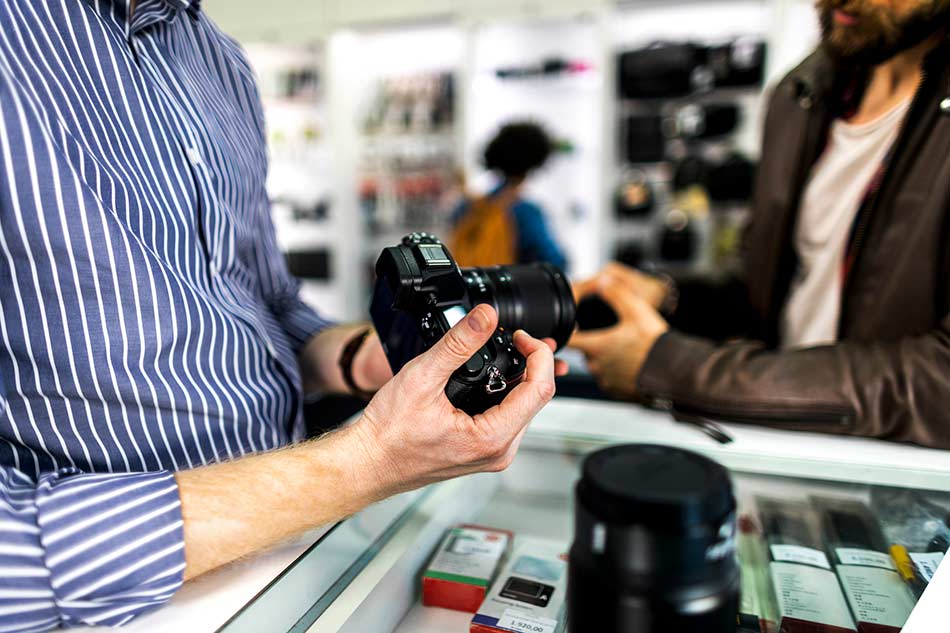
Although it has some amazing features, downsides of Canon’s new mirrorless camera are that it lacks an EVF (electronic viewfinder) and environmental sealing. Also, its battery life is somewhat disappointing.
The M6 II was announced in August (2019) and it will be available for purchase at the end of September. In this Canon EOS M6 Mark II review, we will discuss all the advantages and disadvantages of this camera so you can decide if it’s worth buying.
Table of contents:
- Canon EOS M6 Mark II Specs
- Canon EOS M6 Mark II Body & Design
- Canon EOS M6 Mark II Build & Handling
- Canon EOS M6 Mark II Video Performance
- Canon EOS M6 Mark II Lenses
- Canon EOS M6 Mark II Price
Canon EOS M6 Mark II Specs
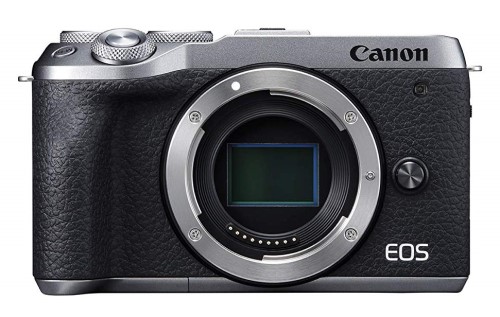
On paper, the specifications of the Canon M6 II seem very interesting. The camera revolves around a 33.0MP APS-C (22.3 x 14.9 mm) CMOS sensor and Digic 8 processor, while it has a native ISO sensitivity range of ISO 100 to 25600.
The Canon M6 II is the highest resolution APS-C camera. It will capture the tiniest details and give you the flexibility to crop images without losing much quality. Additionally, the camera can save files in RAW format so you can also improve images in post-production.
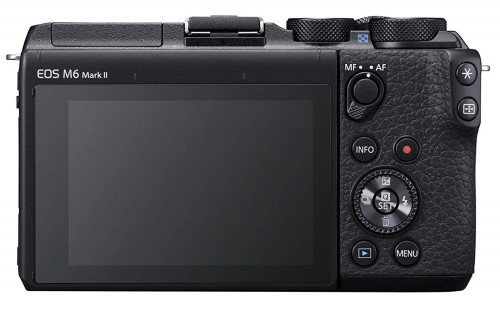
With a burst shooting speed of 14 fps (30fps RAW burst shooting) with AF and AE tracking and a top shutter speed of 1/16000 second, this camera does a great job in photographing moving targets. Moreover, it uses the phase-detection autofocusing system with 143 AF points, and it has Dual Pixel AF with Eye AF Servo.
Overall, the Canon EOS M6 Mark II comes with a lot of improvements over its predecessor. It has a bigger resolution (33MP vs 24MP), more autofocus points (143 vs 49), faster burst shooting (14 fps vs 9 fps), and higher video resolution (3840 x 2160 vs 1920 x 1080).
There are also some improvements in battery life, but the difference is not substantial. As with the original Canon M6, you can expect to take around 300 shots before you will need to recharge the camera. At least, now there is an option to charge the camera via USB.
Canon EOS M6 Mark II Body and Design
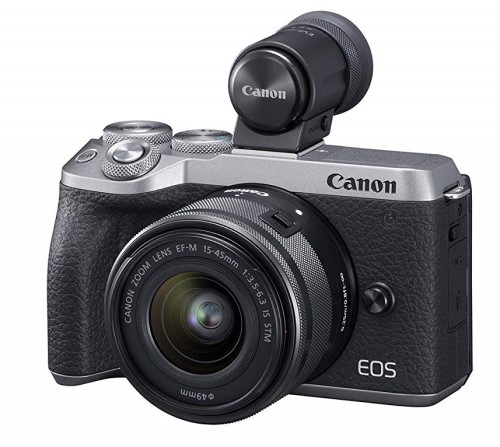
The Canon EOS M6 Mark II weighs 0.90 lb and has dimensions of 4.72 x 2.76 x 1.93 inches, so it can easily fit into a bigger pocket. Because of its compact size and lightweight, this camera is a perfect travel partner.
The strangest thing about the Canon M6 II design is that it lacks an electronic viewfinder. Although there is a possibility to attach an external one, it is not included when you buy the camera. Many photographers prefer using a viewfinder, especially on a sunny day, so this comes as one of the big disadvantages of this camera model.
For framing shots, you can only use a 3” LCD. This screen has a resolution of 1,040k dots, it uses touchscreen technology, and it is tiltable in all directions. The LCD screen is convenient for shooting images from different angles, it is rich in colors, and it allows you to set the focus point quickly.

Bluetooth and Wi-Fi technologies are there to help you to share the data files between devices. The Canon Camera Connect app allows you to instantly share images and videos, while it also provides creative possibilities such as using your phone as an LCD screen and to perform remote shooting.
Canon EOS M6 Mark II Build and Handling

The Canon EOS M6 Mark II doesn’t have environmental sealing, so try not to use it in freezing temperatures, while it is raining, or in a very hot environment. Also, try to protect the camera against dust and moisture.
The camera has a very intuitive ergonomics. The buttons are a bit bigger than on the M6, while now there is also an AF/MF toggle switch. Overall, the camera has enhanced usability and many of its controls can be customized in order to suit your needs in the best way.
Additionally, the Canon M6 MII has improved grip in comparison to the previous model. The grip is now a bit deeper, so it should feel more comfortable to use the camera for extended periods of time.
Canon EOS M6 Mark II Video Performance
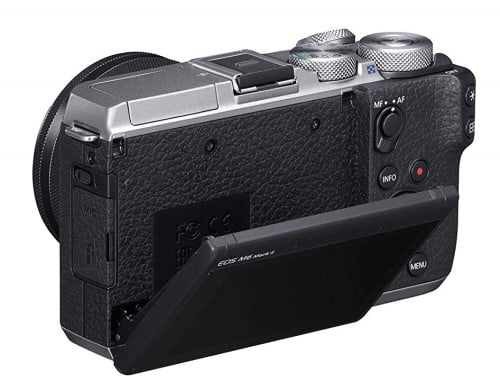
The Canon EOS M6 Mark II records 4K video at 30 fps and Full HD at 120 fps. This is a substantial improvement over its predecessor which could shoot only Full HD video at 60p.
The 4K video is very sharp, and it doesn’t have a crop factor. Another good thing is that you can attach an external microphone. However, it doesn’t have a jack for headphones.
Learn more about the Canon M6 Mark II in the video above by Gordon Laing.
Canon EOS M6 Mark II Lenses
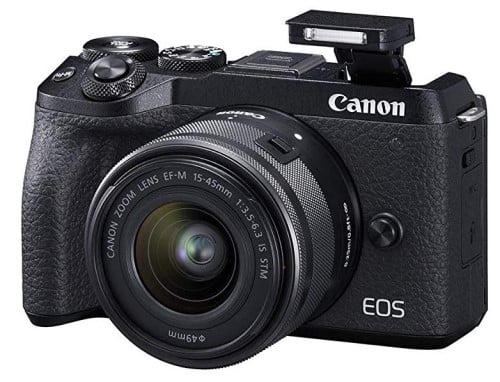
The Canon M6 MII has a Canon EF-M lens mount. Since the company recently joined the market of mirrorless cameras, there are only around 20 lenses to choose for this camera. Still, if you buy an optional EF-M adapter you can also use Canon EF and EF-S lenses.
If you are not sure what lenses to choose for this camera, we suggest you try some of these:
- Canon EF-M 22mm f/2 STM or Canon 32mm f/1.4 STM – Compact Prime Lens.
- Canon EF-M 55-200mm f/4.5-6.3 IS STM - Zoom lens with excellent reach.
- Canon EF-M 11-22mm f4-5.6 IS STM – Wide-Angle Lens.
Canon EOS M6 Mark II Price
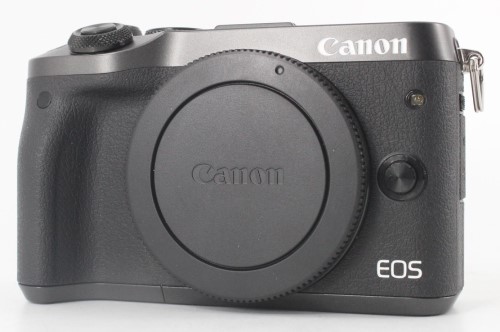
Canon EOS M6 Mark I
The Canon EOS M6 Mark II will be available in September and it will cost around $849 (body only). If this price is not within your budget, you might consider buying its predecessor.
On MPB, you can buy a used Canon EOS M6 (Mark I) in excellent condition for the price as low as $364.00. If you're not familiar with MPB, check out our MPB review to learn why it's our top-recommended used gear resource.
This article about "Canon EOS M6 Mark II Review" was first published on our website here https://www.photographytalk.com/canon-eos-m6-mark-ii-review